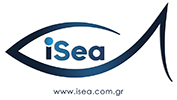12.07.2018
The inception workshop on the bycatch project was organized by Turkish Marine Research Foundation in Taksim, Istanbul, on July 9th 2018. To understand the level of bycatch in the Mediterranean Sea and to test the mitigation measures, field studies will be conducted by Doga Dernegi, DEKAMER, WWF Turkey and TUDAV.
Bycatch is the accidental catch of no-target species in fishing activities. Every year thousands of vulnerable species, such as dolphins, turtles, birds, sharks and rays, are entangled in fishing nets, most of which result in death. It is one of the most serious problems concerning the survival of these species.
To understand the level of bycatch in the Mediterranean Sea and to test the mitigation measures, MAVA Foundation has decided to support the project called « Understanding Mediterranean multi-taxa ‘bycatch’ of vulnerable species and testing mitigation- a collaborative approach » in three project areas, Morocco, Tunisia and Turkey, under the leadership of FAO GFCM, in the partnership with Birdlife International, ACCOBAMS, UNEP-MAP, IUCN and MEDASSET. In Turkey, the surveys will be conducted with the collaboration of TUDAV, DEKAMER, Doga Dernegi and WWF Turkey.
One of the partners of the project, ACCOBAMS, is the regional agreement on the conservation of the cetaceans (whales and dolphins) in the Mediterranean and Black Seas. TUDAV has been their partner for more than 10 years. In this framework, an inception workshop for this bycatch project was organized by TUDAV in Taksim, Istanbul, on 9 July 2018. Thirty-six people from universities, NGOs, Coast Guard, and international organizations participated in the workshop to discuss how we can achieve the goal of the project.
The bycatch data will be collected by observers sent to fishing vessels as well as interviewing fishermen in selected ports. There will be a training activity, workshops with fishermen, and also testing the possible mitigation measures during fishing activities.
Reducing bycatch is important for sustainable fisheries. Without these vulnerable megafauna, such as turtles and dolphins, our marine ecosystem do not function in a healthy way. We expect to cooperate with fishers for achieving this goal. The project will continue until 2020 when we can share our experience to protect precious marine life in our seas.















